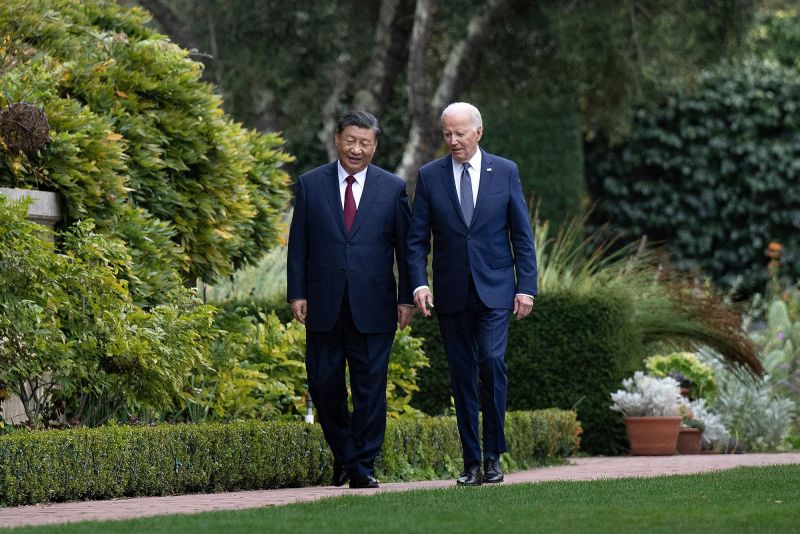
China's Assurance to the US: A Reassuring Exchange on Election Interference

A look into the exchange between Chinese leader Xi Jinping and US President Joe Biden, and the assurance given by China not to interfere in the 2024 US presidential election.
The Reassuring Exchange
In a significant and highly anticipated meeting between Chinese leader Xi Jinping and US President Joe Biden, a pivotal assurance was exchanged. During their high-stakes, hourslong meeting in California, Xi Jinping conveyed to President Biden that China would not interfere in the 2024 US presidential election. This previously unreported exchange sheds light on the efforts aimed at easing historically high military and economic tensions between the two superpowers.
President Joe Biden (right) and Chinese leader Xi Jinping after a meeting during the Asia-Pacific Economic Cooperation (APEC) Leaders' week in Woodside, California on November 15, 2023.
The assurance was reiterated by the Chinese Foreign Minister, Wang Yi, to Biden's national security adviser during a recent meeting in Bangkok. The exchange, described as brief, reinforces China's commitment to non-interference in the upcoming US election. This assurance comes at a critical juncture in US-China relations, highlighting the significance of mutual respect and non-interference in each other's domestic affairs.
US Concerns and Foreign Election Meddling
The potential for China to interfere in or influence US elections has been a recurring topic in recent high-level meetings between the two nations. This reflects the underlying tensions and wariness of American officials regarding foreign election meddling, particularly in the aftermath of the 2016 Russian operation targeting the Democratic National Committee.
While China has assured non-interference in the 2024 election, concerns persist regarding Beijing's cyber operations and their impact on key US infrastructure. The presence of Chinese cyber operatives in critical computer networks raises the specter of potential disruption to US military response in the event of a Chinese invasion of Taiwan. The ongoing efforts by US national security officials to address this threat underscore the complexities of cybersecurity and geopolitical dynamics in the modern era.
China's Role and US Preparations
China's approach to influencing US elections has historically been more passive than that of Russia, with a focus on shaping specific congressional races. However, recent indications suggest a more aggressive stance by Chinese operatives in targeting US voters and political candidates. The directives issued to intensify efforts to influence US policy and public opinion, along with the use of fake social media accounts, highlight the evolving nature of foreign influence operations.
US officials are vigilant in their preparations for potential foreign interference in the 2024 election, including propaganda, hacking, and AI-powered influence campaigns. The need to safeguard the integrity of the electoral process amidst expanding geopolitical turmoil and domestic political complexities is a paramount concern. The delicate balance of stabilizing US-China relations while addressing foreign influence operations underscores the challenges faced by American and Chinese officials in navigating this intricate landscape.














